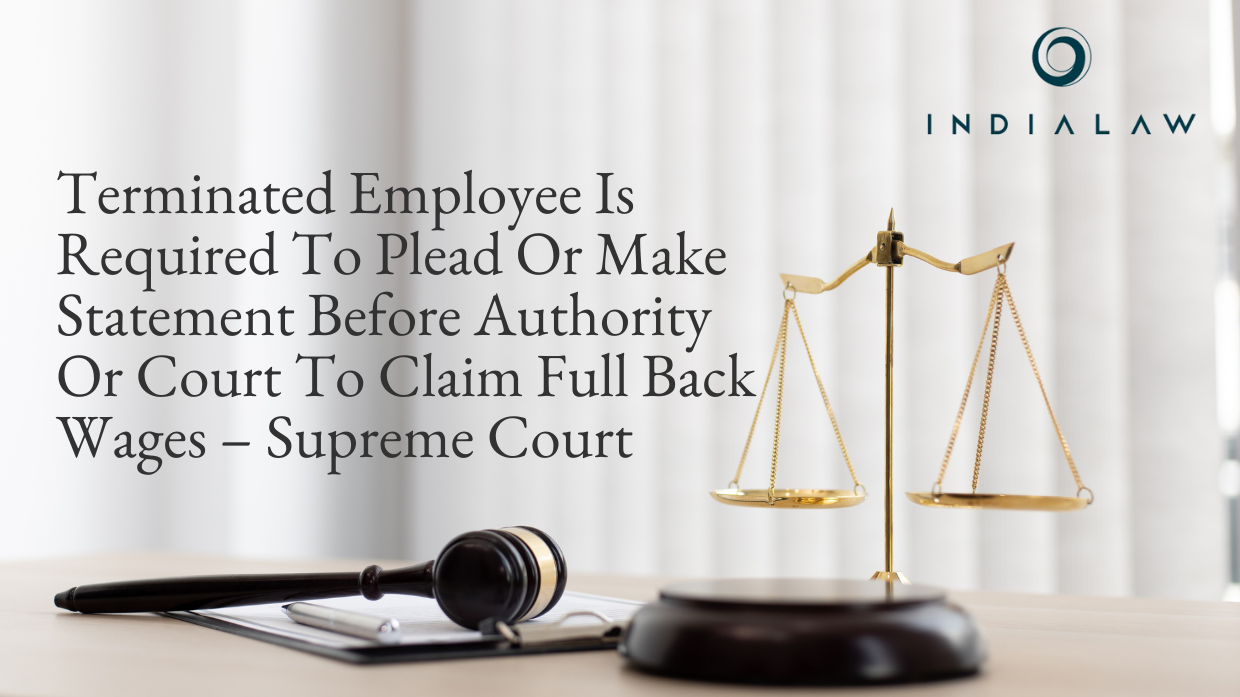Terminated Employee Is Required To Plead Or Make Statement Before Authority Or Court To Claim Full Back Wages – Supreme Court

Hon’ble Supreme Court have held[1] that it is an obligation of an employee to plead in his complaint that he is not gainfully employed or had been employed on lesser wages after his dismissal when he is claiming full back wages in case of wrongful dismissal or termination complaint.
The Hon’ble Court relied upon its own Judgement and observed that the proposition enunciated in Deepali Gundu Surwase case[2], the Officer-employee may not be entitled to full back wages. The Hon’ble Court discussed the ratio laid down in Deepali Gundu Surwase (supra),referring to para 38.3, the Hon’ble Court held that, Ordinarily, when an employee or workman whose services are been terminated and who is desirous of getting back wages is required to either plead or at least make a statement before the adjudicating authority or the Court of first instance that he/she was not gainfully employed or was employed on lesser wages.
If the employer wants to avoid payment of full back wages, then it has to plead and also lead cogent evidence to prove that the employee/workman was gainfully employed and was getting wages equal to the wages he/she was drawing prior to the termination of service. This is because of settled position of law on burden of proof, who makes a positive averment about its existence. Therefore, once the employee shows that he was not employed, the onus lies on the employer to specifically plead and prove that the employee was gainfully employed and was getting the same or substantially similar emoluments.
In above case, there was nothing on record to show whether employee was gainfully employed after his dismissal from service. The Hon’ble Court carefully observed the pleadings of an employee that he has not pleaded about his non-employment. Though the employee pleaded about sudden set back and financial hardships he was facing, however there was no assertion about his non-employment.
[1]2022 SCC OnLine SC 499
[2](2013) 10 SCC 324
By entering the email address you agree to our Privacy Policy.



